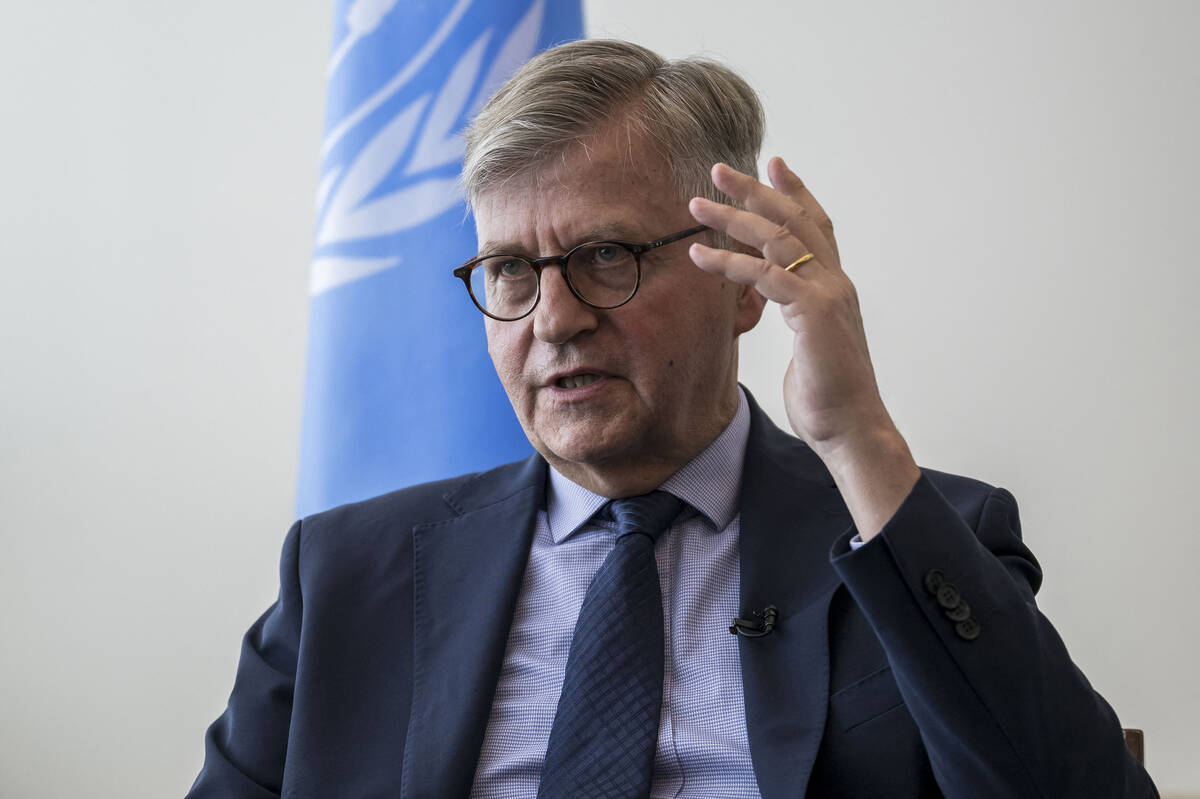Top UN peacekeeper says Arab League Call for Gaza deployment is premature
The United Nations peacekeeping chief argued against the latest calls for international troops to deploy in Gaza, saying the post-war state of affairs was too uncertain and that any operation would require agreement from Israel, which has been highly critical of the U.N.’s work in Palestinian territories.
Jean-Pierre Lacroix, undersecretary-general for peace operations, said in an interview that he’s aware of demands for sending in so-called Blue Helmets, including earlier this month by the Arab League, but cautioned it’s too early and the politics too fraught to consider the option at the moment.
“Nobody really knows what the day after in Gaza would look like,” Lacroix said. “We absolutely don’t know what the state of affairs would look like but obviously the parties — and that would certainly include Israel — would have to agree to such a proposition.”
Right now, the U.N. is calling “first and foremost” for a humanitarian cease-fire, releasing of hostages, access to aid — and then progress toward a two-state political solution, Lacroix said. He added that deployment was a decision that must be taken up by the 15-member Security Council.
The U.N. and its operations in Gaza have come under intense scrutiny by Israel since the Oct. 7 Hamas terrorist attack, in which some 1,200 people were killed and more than 250 were taken hostage. Hamas still holds scores of hostages.
Israel has accused the U.N.’s main humanitarian organization in Gaza of being infiltrated by Hamas operatives — which the agency denies — and at the U.N. has dismissed criticism of its bombardment of the territory.
The Arab League proposal came in the final statement of its meeting in Bahrain May 16.
“We call for the deployment of United Nations international protection and peacekeeping forces in the occupied Palestinian territory until the two-state solution is implemented,” the group’s 22 members said in the Bahrain Declaration.
Lacroix also addressed the challenges the war in the Gaza Strip has created for 10,500 UN peacekeepers stationed in southern Lebanon. He said the Israel-Hamas war was having a “major impact” on the mission known as Unifil, which he described as a mediator between Israeli and Lebanese forces.
More broadly, Lacroix, a veteran French diplomat, said political gridlock was the biggest impediment to U.N.-led operations, beyond just peace and security.
“That is really probably the biggest challenge to not only peacekeeping operations, but frankly to anything that the U.N. can do on peace and security,” Lacroix said. “We need to have member states showing unity and commitment to multilateral approaches to crisis.”
He didn’t mention any countries by name but the council’s work has been largely frozen by disputes between the U.S. and Russia, two of its five permanent members.

















